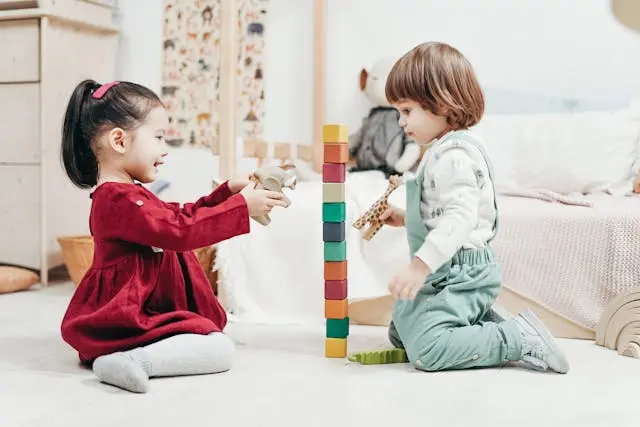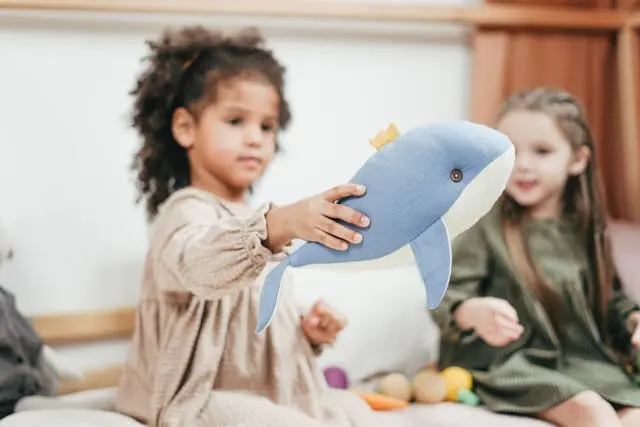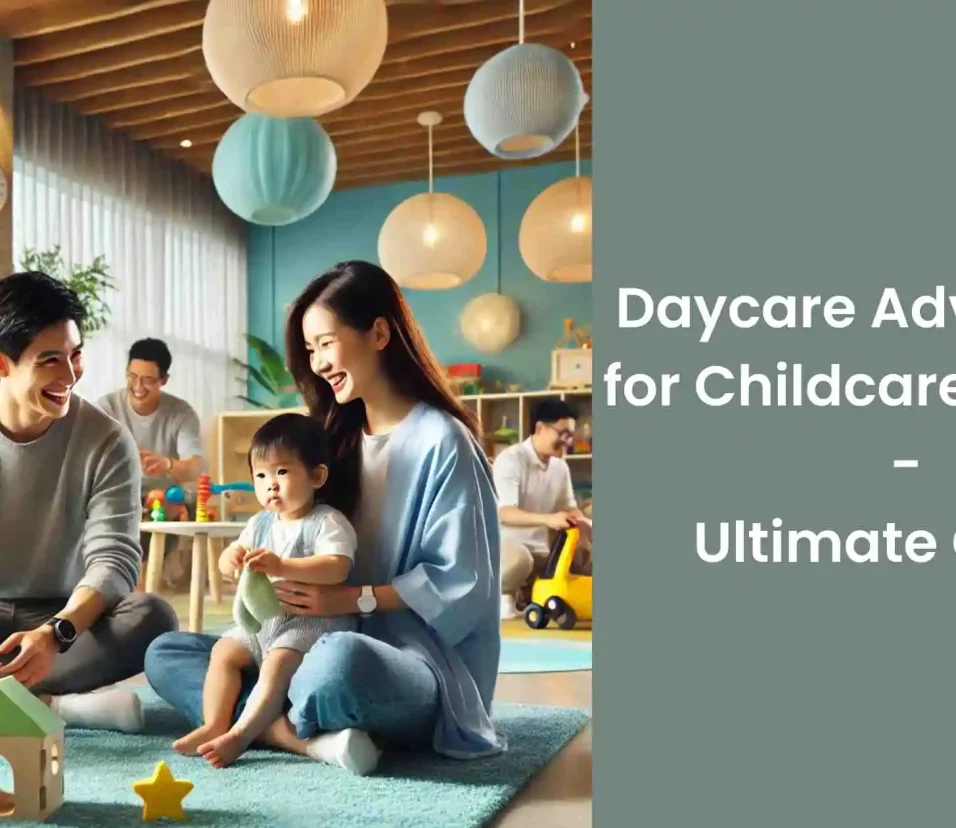How to Cultivate Lifelong Learners: A Practical Guide to Early Childhood Education
The world is evolving rapidly. If you want your child to keep up with the pace, instilling love for learning is essential. These architects of the future need to learn, unlearn, and relearn continuously. Hence, quality early childhood education is essential.
Genuine curiosity and thirst for knowledge, along with professional childhood education, will enable the child to adapt, innovate, and thrive in this era of unprecedented technological advancement and growing global interconnectivity.
Lifelong learning begins with proper infant care. Nourishing young minds enables them to embrace the changing world with more confidence. It also encourages them to navigate the dynamics of this inclusive world.
Children harbouring love for learning tend to find success in academics. It prepares them to persevere through challenges that lead to higher levels of achievement. Studies have proved that learning serves as a proper channel for personal growth and development. Starting with newborn development, the child acquires new skills, insights, and a proper understanding of themselves and the world around them. This self-discovery boosts their confidence and self-esteem.
What does Lifelong Learning mean?
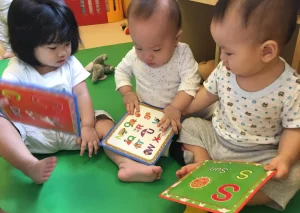
Image by: Camelot Child Care Centre
Lifelong learning technique is a form of self-initiated education that focuses on personal development. Though there is no standardized definition of lifelong learning, it cannot be restricted to informal learning. In most cases, it is voluntary and for achieving personal fulfillment.
Children may not show their eagerness, but with continuous encouragement and guidance, they can develop this key habit. Continuously working on this learning habit will pave their path to success.
Importance Of Lifelong Learning
One can easily understand that lifelong learning helps achieve personal fulfillment and satisfaction while pursuing personal interests or achieving professional ambitions.
It is a known fact that from infancy until the end, a human has a natural drive to explore, learn, and grow. This habit encourages one to improve the quality of their life and understand their sense of self-worth while paying attention to ideas and goals that inspire them.
Apart from formal schooling and jobs, most of us have other goals and interests. This part of human behaviour comes with natural curiosity, a critical part of natural learners. Further, it aids in better development and growth.
Learning is not limited to school or classrooms. Learning to talk or walk, which are critical parts of infant development, are lessons for life. At the same time, an adult learns a new technique, language, or gadget, which are also part of life lessons.
An adult learns these lessons as part of everyday learning that can be learned through socialization, trial and error, or self-initiated study. A child learns from a professional child education center or any other similar setup.
Interests, curiosity, and motivations lead to learning new things. Elders can learn by themselves or hire a guide for the purpose. A child is curious to explore different fields. An early childhood educator can recognize the child’s interests and encourage them to pursue them. In a few cases, a parent may fail to recognize the positives and negatives of a child. The professional has a keen eye and can recognize where the child is falling back or excelling.
A Few Interesting Notes
- Warren Buffet spends five to six hours reading newspapers and corporate reports.
- Bill Gates reads fifty books per year.
- Mark Zuckerberg reads at least one book every two weeks.
- Elon Musk grew up reading two books a day, teaching himself engineering and rocket design.
The truth is that most successful people follow constant learning. They understand the need for continuous growth, deepening their knowledge, and a thorough understanding of the world.
Following the steps of these people will be a wise decision. If you wish your child to be successful, you can seek professional guidance in infant development or leave them at a childcare center.
An individual’s potential is unknown, and no one can predict what they can accomplish with years of dedication, encouragement, and preparation. Teachers and tutors at the infant care center can support the tiny tots in many ways. A few of them include:
- Enhance Innovation Skills
The modern competitive world requires creative thinkers and growth-oriented professionals. A teacher encourages the development of innovative abilities, preparing the child to face the world and succeed in the future.
A time-tested way to promote innovation among infants and toddlers is through activity-based learning. This technique encourages self-learning and boosts confidence; the child also shows enthusiasm and keenness in learning, which is bound to have a positive impact. It also allows children to develop fundamental design abilities, effectively collaborate with peers, and gather ideas to bring them forth.
Benefits of Lifelong Learning
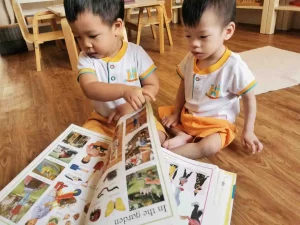
Image by: Camelot Child Care Centre
Such encouragement helps children to be more confident, independent, creative, and innovative, which equips them to thrive in a competitive world.
1) Cultivate a critical mindset
Instructing the students can help them become lifelong learners. Exposing them to different ideas and viewpoints will ignite their curiosity. It will also encourage them to ponder the topic, and their inner critic will start to work.
2) Promote self-directed learning
Teachers and parents should encourage children to learn on their own after school. Studies have proven that granting children this freedom at an early age will benefit them in their future lives. Taking ownership of their education will allow the child to retain it for a long time.
Demonstrating the benefits of taking responsibility also has positive effects. In most cases, the child shows better self-esteem, a sense of accomplishment, and independence. They also tend to show keenness to help others.
3) Use mistakes as opportunities
We can gain more knowledge from mistakes. They help us find better ways to finish a task and, at the same time, discover our strengths and weaknesses. Infantcare teachers encourage kids to try new things, which help them develop mentally and emotionally. Students are resilient and vulnerable, but professional guidance will help them overcome their weak points.
4) Setting Learning Goals
In the early childhood education center, the teachers set objectives or goals to inspire and engage their students. These (SMART) goals are specific, measurable, achievable, relevant, and time-bound that support students’ learning and help teachers keep students on track.
5) Encourage The Use of Technology
Encouraging the use of technology is a lifelong learning technique. Acquiring and developing interests and knowledge are crucial and begin with infant development centers. Teachers use various apps to incorporate technology into the classroom. Such usage encourages them to show their creativity and makes them technologically competent (a must-have skill set in the 21st century).
6) Habits of Implementing
Implementing the learned material makes skill-based learning useful. For example, looking at a sketch is not the same as making one. Professional child care centers encourage students to implement what they have learned and use their understanding in their daily lives. Early childhood teachers encourage children never to stop learning and developing, which enables them to grow into a better self. Fostering the child’s keenness to learn will gift them with the ability to learn lifelong.
Many may not understand the importance of lifelong learning. This habit has many benefits, not only at a young age but also in the future. The key ways a child can benefit from developing lifelong learning techniques guided by a professional include:
7) Renewed self-motivation
At times, the child may get bored with their daily activities. Exposing them to a new activity or skill will encourage them, and they tend to show keenness for learning.
8) Recognition of interests and goals
A child may be good in one area, while they may not be performing so well in another. Exposing them to new skills will allow them to discover their interests. An infant caretaker can play a key role in providing the necessary exposure.
9) Improvement in skills
While learning a new skill or acquiring new knowledge, one is building other skills that help in dealing with daily activities. In certain cases, the new skill may help improve skills that the child has already learned. A professional daycare center can encourage using skills in more than one way, benefiting the child.
10) Boost self-confidence
Exposing the children to new activities and topics and allowing them to excel in them will boost their confidence. Further, the child tends to explore new things and find areas of interest. Self-learning techniques will not only encourage the child to learn new things, but the child will tend to retain the knowledge gained for a longer period of time.
11) Develop problem-solving techniques
Children tend to ask questions to seek information, which involves them in problem-solving techniques. It allows them to develop a passion for knowledge-seeking and self-improvement. It often translates into a source of joy and fulfillment.
The self-learning technique boosts self-confidence and self-esteem. Numerous careers demand continuous learning and professional development. Cultivating a love for learning provides the child with the necessary foundation for future success and satisfaction. Further, it provides the child with an added advantage in the highly competitive job market.
If you want your child to be happy and excel, you need to pick a good early childhood education center. Trained teachers not only guide children but also parents.
Many centers focus on newborn development because they understand the importance of learning from the initial stage. Depending on the child’s age, parents can seek professional help and pave a strong foundation for their child.



